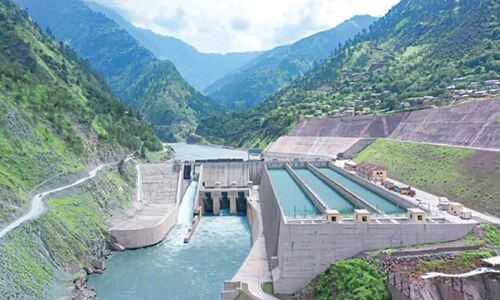CONSUMER spending is projected to rise at an accelerated pace in 2015 as gains seen in the real income of the average household will be used to satisfy the pent-up demand for goods and services. There would possibly be no or very little space for household savings.
Many local and multinational companies, mindful of the implications of the pattern of family spending on their business, commission studies, but they and the marketing research companies jealously guard their findings because exclusivity brings business gains. They decline to share even the general market trends with the media.
The CEO of a major private marketing research company, when approached, did confirm that its findings endorsed the perception of improved consumer sentiments in 2015. He agreed that spending can get a boost if assets in property are leveraged through innovative tools of financing.
There has been a surge in consumption, linked with rising values of property owned by a family. The sudden and steep escalation in property prices in urban areas increases the sense of well-being in families living in privately owned houses, and it does influence their spending behavior, a random Dawn survey reveals
The sale of food items and consumer durables are expected to increase approximately 10pc in 2015
However, the average family’s nominal income is overstretched to support minimum living standards. Many families are in debt or under pressure to meet their forced saving obligations (‘beesi’ installments). A family’s overall demand is said to be too strong to create any new savings to balance its budget.
The ‘beesi’ is a dependable, informal and popular system of raising cash by a group of individuals. They chip in a specified contribution to the pool and take turns to meet a one-time big expense such as a child’s marriage or buying a consumer durable etc.
According to information gathered by this writer, the injection of funds in a family’s income from irregular sources such as a contribution from a relative working overseas or from a part-time informal business or jobs of other family members is not projected to alter in 2015.
A household’s net worth (assets minus debt) may not plummet further this year, but a noticeable improvement in assets is not expected either. The financial wealth or return on investment of an average family will not improve as it has little or no investments.
The sale of food items and consumer durables are expected to increase approximately 10pc in 2015 from 2014. Private spending on health and education may improve somewhat, along with the market for motorcycles — the best mode of transport for working families.
The pressure on employers for renegotiating wage rates may recede to some extent as economists find it inversely related to the perception of well-being. “The workers stress for renegotiation of wages is harder when they perceive inflation to hike in the near future (six months),” an economist explained.
Without clearer indications of key drivers of growth and their potential to create jobs, it is premature to comment on the emerging trends in the job market. But the situation in urban centres is expected to somewhat ease. It is expected to absorb more new entrants compared to 2014, but may not necessarily improve families’ incomes as people prefer to start their own family as soon as they get a stable job.
The expected inflation rate (4-6pc) and its public perception during the current year is lower than that for last year (8-10pc) because of a substantial decline in POL prices and the relative stability in prices of kitchen items. The actual impact of value gains in household budgets has yet to be worked out, but some estimates project 10-15pc improvement in real incomes.
The current Consumer Confidence Index report, to be released shortly, according to an insider in the State Bank of Pakistan, shows a further spike. The last report, released in November 2014, showed a mild recovery after a dip in the two months before that. The fall in consumer confidence in October 2014 was attributed to the rise in confrontational politics in the country at that point of time. Since 2012, the survey-based consumer confidence report has been compiled every other month, in collaboration with the Institute of Business Administration.
A report posted on the central bank’s website states: “Women, young, less educated and minorities make more inefficient forecasts, give more importance to their past life experience, are rigid to change their peculiar beliefs (private information), and are sluggish in updating expectations according to recent developments”.
At another place commenting on the sample, it says: “At a more aggregate level, a large majority of our respondents are males, either directly responsible for financial matters or closely related to the key decision maker, and they lie in the age bracket of 30-50 years, with a median age of 47.
“A large majority (82pc) have received at least a high school education……By-wave comparisons corroborate the earlier stated statistics, but also reveal other interesting facts. First, our respondents report monthly household income of Rs10k-50k ($100-500) and it is remarkably consistent across all waves. Second, the by-wave consistent level of education lies between Matric and Bachelors…. Third, the lion’s share of source of income of our households is from salaries (about 50pc), while trade (or distribution) and agriculture account for 34.26pc of households’ incomes”.
Published in Dawn, Economic & Business, January 12th, 2015
On a mobile phone? Get the Dawn Mobile App: Apple Store | Google Play
















































Dear visitor, the comments section is undergoing an overhaul and will return soon.